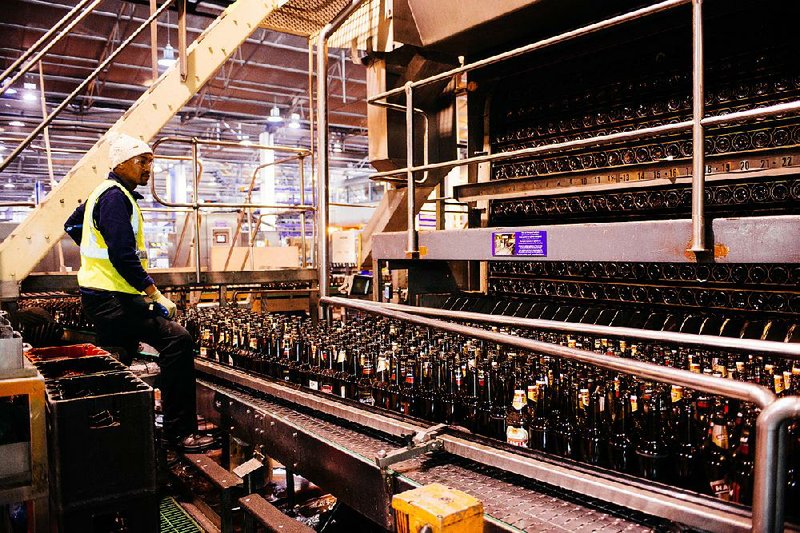LONDON -- Shareholders of SABMiller and Anheuser-Busch InBev on Wednesday approved a deal valued at more than $100 billion to create a giant in the beer industry that would control some of the world's best-known brands, including Budweiser, Corona, Hoegaarden, Leffe and Stella Artois.
The takeover of SABMiller by its larger rival, Anheuser-Busch InBev, was approved by shareholders despite objections from some SABMiller investors. The combined company would account for 27 percent of beer sales worldwide and would have annual revenue of about $55 billion.
The deal would also give Anheuser-Busch InBev, already the world's largest brewer, a substantial operation in Africa, where it has little presence, and greater dominance in Latin America.
"We are committed to driving long-term growth and creating value for all our stakeholders," Carlos Brito, the Anheuser-Busch InBev chief executive, said in a news release.
Anheuser-Busch InBev said it expected to delist SABMiller's shares on Oct. 6, and shares in the combined company would begin trading in Brussels, Johannesburg, Mexico and New York next month.
The approvals on Wednesday came after Anheuser-Busch InBev, which is based in Belgium, spent nearly a year putting together a series of agreements to sell a variety of assets to win over regulators.
• In November, Anheuser-Busch InBev agreed to sell SABMiller's 59 percent stake in MillerCoors in the United States to SABMiller's partner in a joint venture, Molson Coors Brewing, for about $12 billion.
• In March, it reached a deal to sell SABMiller's 49 percent stake in the maker of Snow, the world's best-selling beer, to China Resources Beer, a state-owned brewer, for about $1.6 billion.
• In April, it agreed to sell the brands Grolsch, Meantime and Peroni to Asahi Group Holdings of Japan for about $2.9 billion.
• It said it would be open to selling SABMiller's assets in the Czech Republic, Hungary, Poland, Romania and Slovakia as part of a package of divestments to win approval from European regulators.
All of those transactions are subject to the SABMiller deal being completed, which Anheuser-Busch InBev said was likely by Oct. 10. A series of largely perfunctory steps remain before the two brewing giants are officially combined.
Along with having to make those agreements, Anheuser-Busch InBev was forced to increase its cash offer for SABMiller as the value of the pound fell after Britain's vote to exit the European Union.
That increase to about $58.41 a share still did not satisfy some SABMiller shareholders. They felt that the deal, as it was structured, favored SABMiller's two biggest investors, who own a combined 41 percent of the brewer, and that it continued to undervalue the company.
To win the support of those two big shareholders, the U.S. tobacco giant Altria and the Santo Domingo family of Colombia, the deal was structured to give them the ability to take restricted shares, instead of cash.
That would help Altria and the Santo Domingo family avoid a costly tax bill after the transaction.
Facing investor pressure, SABMiller agreed in July to treat those two shareholders as a separate class, allowing other investors to vote on the cash offer separately.
As a result, the transaction hung on the outcome of a vote by a much smaller pool of SABMiller shareholders on Wednesday.
Aberdeen Asset Management, a British investment management company, and the United States Steel and Carnegie Pension Fund were among a group of SABMiller shareholders who publicly opposed the deal in the weeks leading up to the vote.
On Wednesday, however, a majority of the company's shareholders approved the merger, SABMiller said. They represented more than 75 percent of the votes cast -- the threshold for the deal to proceed.
In a statement after the vote, Aberdeen said that while the vote had not gone its way, "We do take comfort that our engagement with the board and management helped to secure a better deal for our clients albeit the final price still significantly undervalued SABMiller in our view."
Business on 09/29/2016

